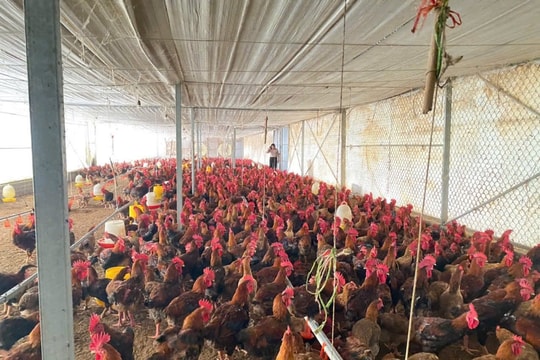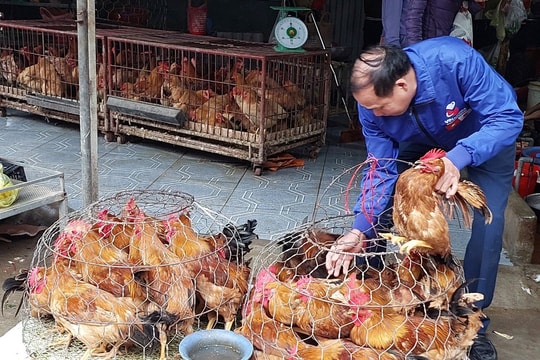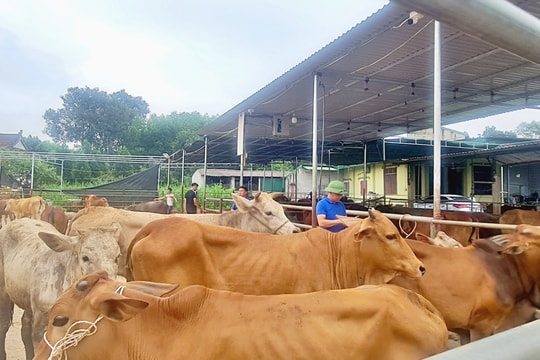Bachelor leaves the city to return to the countryside, raises grass to get rich
As a bachelor who "left the city to return to the countryside" to start a business, with his dynamism and quickness, Ha Van Hai has succeeded with the animal feed business model.
Put your heart into... grass!
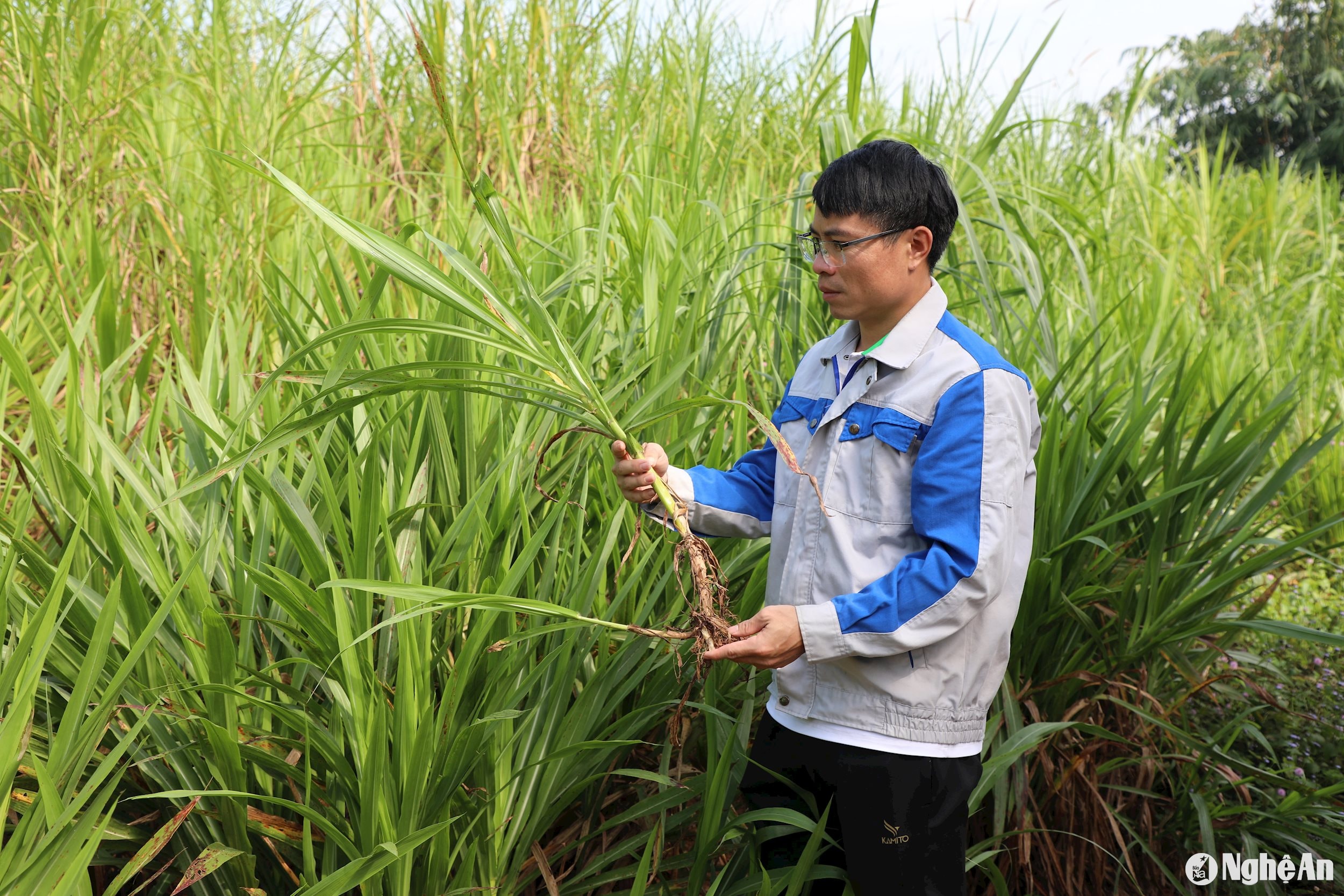
Like many other village boys, Ha Van Hai (Thai ethnic group) had the desire to escape from farming, so even though he was born into a poor family, Hai still tried to pass the entrance exam to the Banking University. Hai had to earn a living by working as a construction worker, security guard... to pay for his 4 years of studying. However, after graduating from university, holding a bachelor's degree in hand, and getting a job in the city with a low salary and a difficult life, Hai decided to return to his hometown...
In his hometown, Hai's family had 2 hectares of hilly land, Hai decided to invest in raising goats for meat. Due to not mastering the farming techniques, Hai failed in the second batch, the goats got sick, had to be sold at a loss, Hai fell into debt. With no other choice, Hai packed up and went to Bac Ninh to work as a worker to pay off the debt. However, the desire to get rich, the dream of starting a business from his homeland always urged Hai to return... And to prepare for that return journey more firmly, Hai took the time to learn about economic models in newspapers, on social networks, read, consult and map out a direction for himself.
.jpg)
“In the countryside, the land and climate conditions are very suitable for developing farm economics, especially livestock farming, and in fact, there are many large-scale dairy and beef farms in the area. Meanwhile, people still have to buy green feed for livestock such as biomass corn, dry straw, etc., so I came up with the idea of growing grass for animal feed to sell,” Hai said.
When returning to his hometown, Hai brought along bags of old grass stems for seeds, surprising his relatives and neighbors. Many people thought that Hai "brought firewood to the forest" and doubted his success. Instead of explaining, Hai focused on planting and caring for the grass to convince everyone with his own achievements. Thanks to the suitable soil and climate, the milkweed varieties grew quickly and had high yields. After only 2 years, 2 hectares of Hai's family's land became a vast grass hill. After successfully planting and selling the NLT-01 milkweed, he began to expand his research on other grass varieties to suit the soil and climate of each locality, giving superior yields and nutritional value.
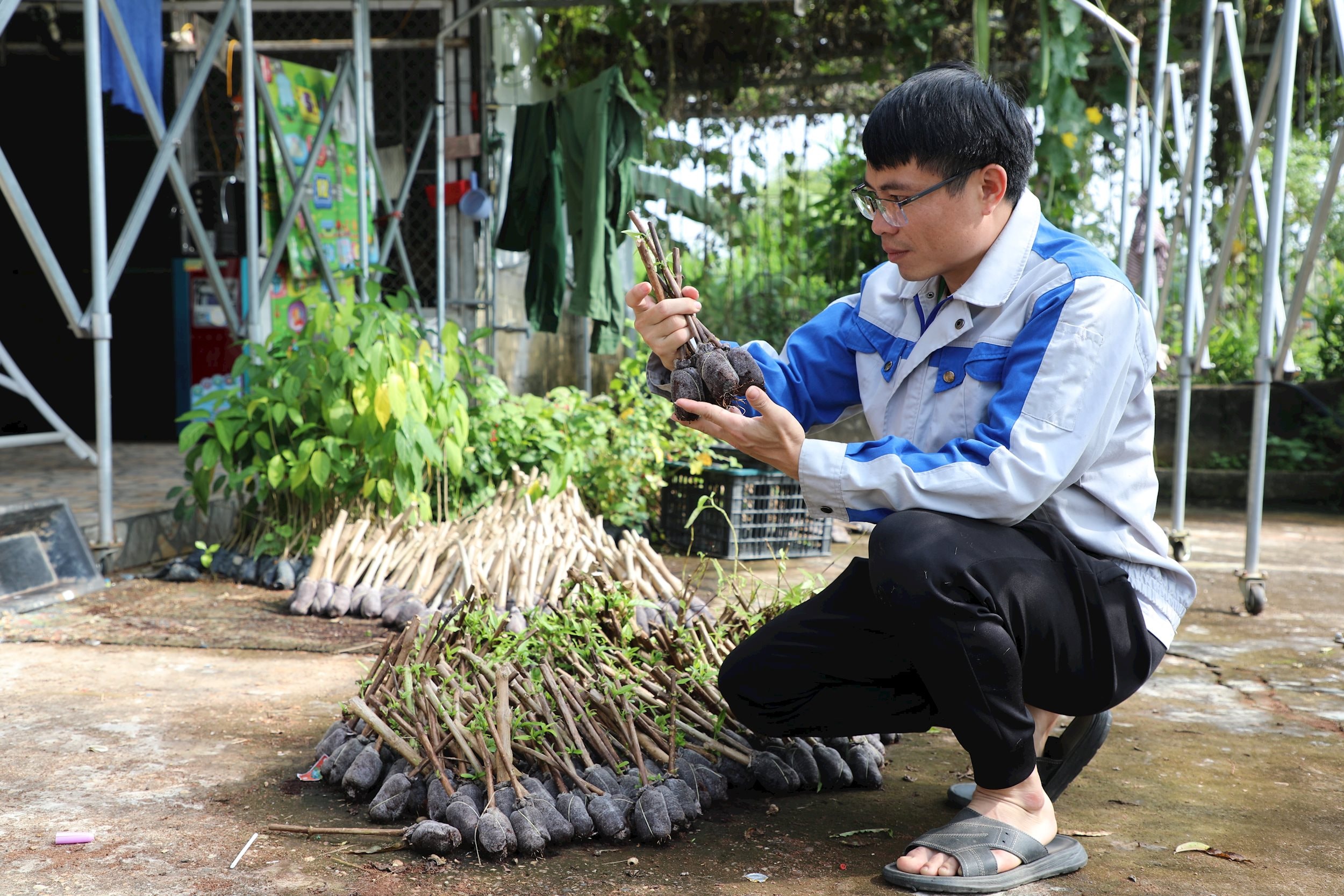
Up to now, Hai's facility has more than 20 grass varieties, including 5 varieties imported from Thailand with a combined area of tens of hectares; creating regular jobs for 6 workers with a salary of 5-7 million VND/month/person; in addition, there are hundreds of people who are sales collaborators and grass growers in the commune.
After successfully growing and propagating dozens of varieties of milkweed, in addition to selling grass to livestock farms. "While large farms grow grass for livestock, they only harvest leaves and young stems, and cut down and throw away old stems and roots, I select and utilize them to sell cuttings to farms and livestock households. This is a significant source of income," Hai said.
Thanks to his successful start-up from raising grass, Hai has now built a spacious house, bought a truck for production and has capital to invest in many other fields such as construction, health care, etc.
Bringing grass to the electronic floor
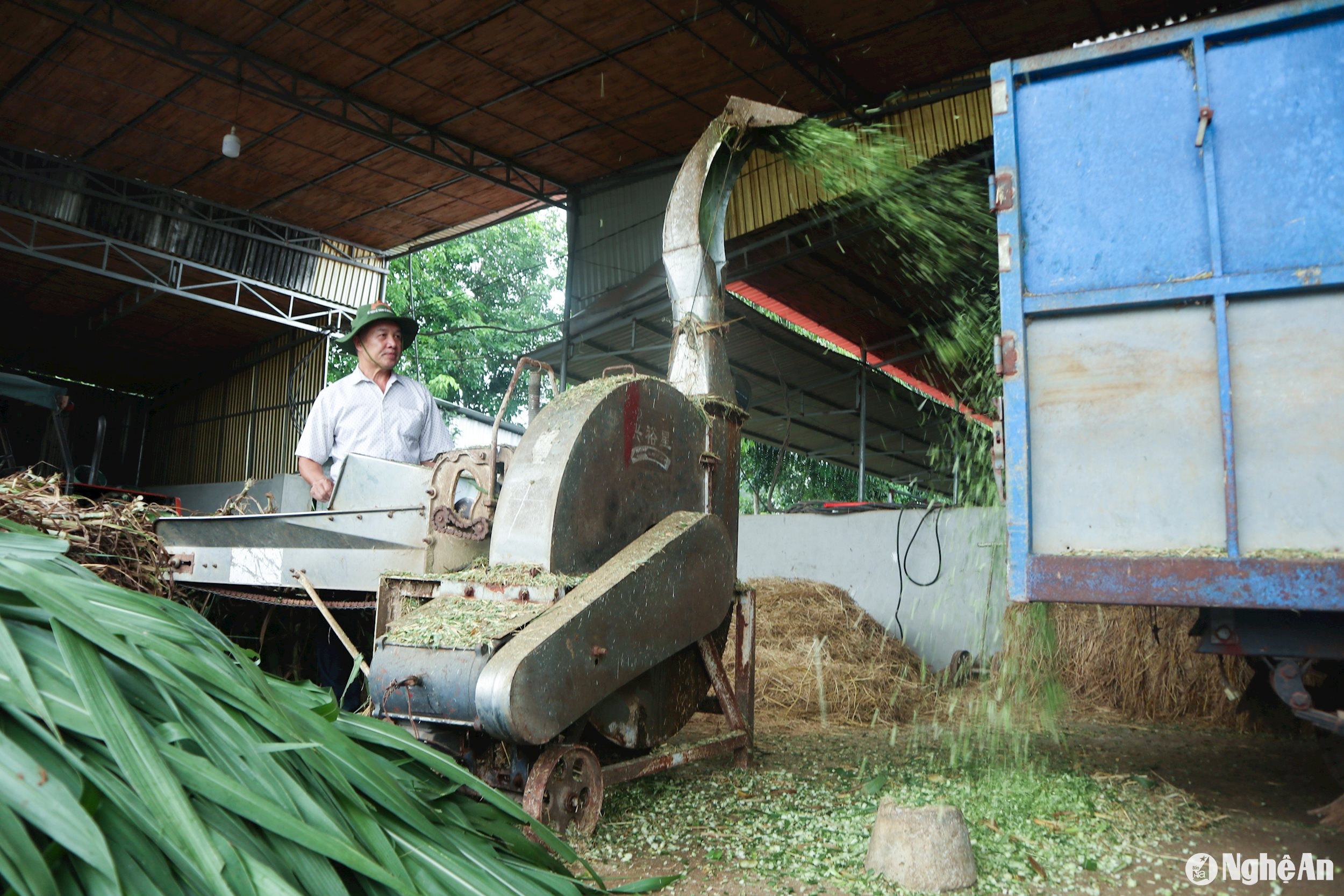
At first, selling cuttings and grass seeds was difficult because few people bought them. Hai decided to take a communication and management class to sell them. Hai set up sales groups on Facebook, Zalo, TikTok and YouTube. After about a year, Hai's sales channels attracted thousands of followers.
“If I only limited my customers to the province, it would be very difficult because the sales volume was not much. Therefore, I applied digital technology to sales. I livestreamed to advertise grass varieties at my farm so that buyers could see the grasses with their own eyes; instructed and conveyed knowledge, planted and cared for grass on social networking platforms... At the same time, I built a network of sales collaborators with about 150 people in the provinces and cities. Thanks to that, I reached tens of thousands of customers at the same time; orders kept increasing day by day,” Hai shared.
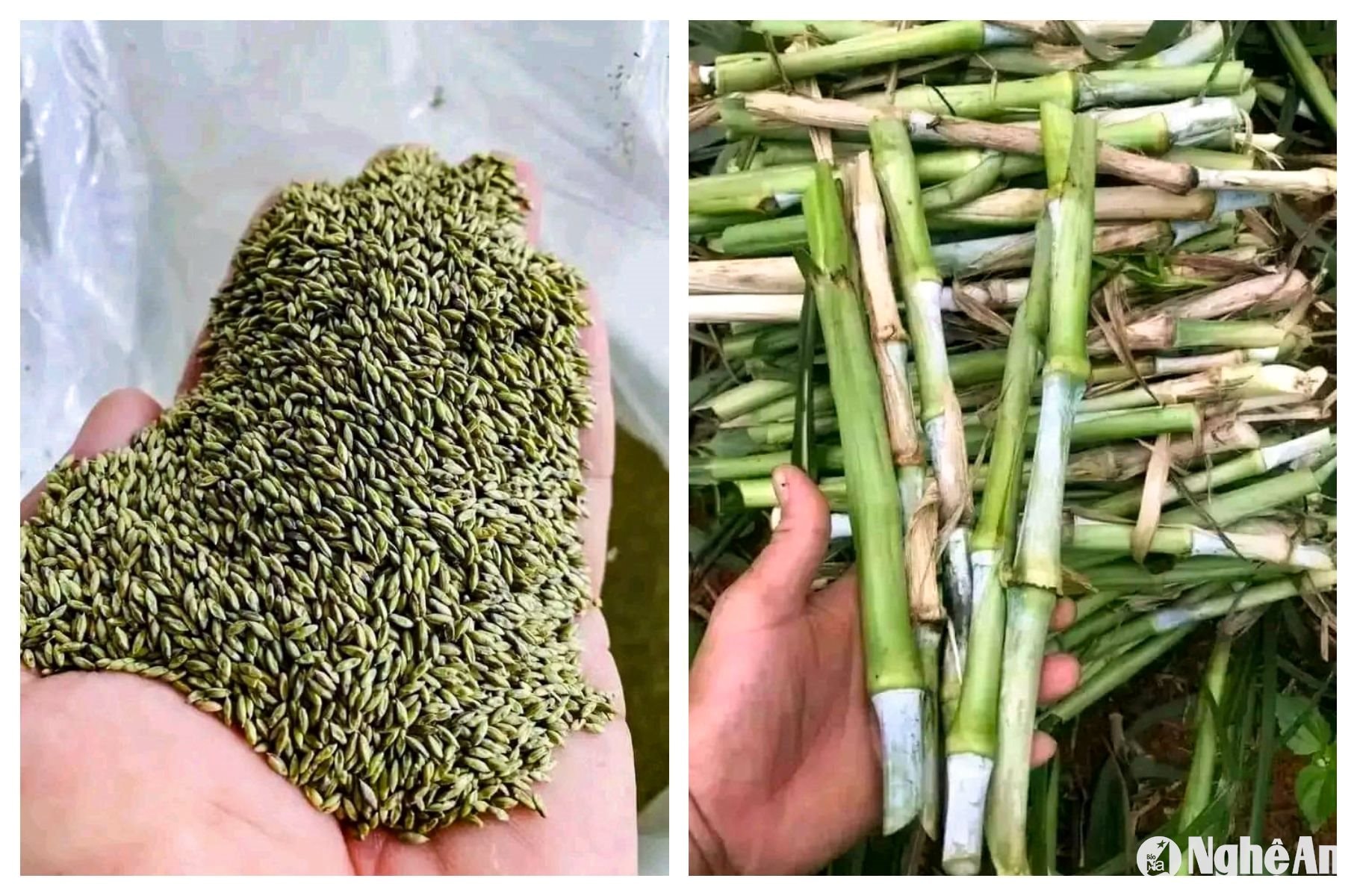
Currently, Hai's grass seeds and cuttings are sold nationwide to many companies and livestock farm owners. On average, he sends 700 to 1,000 orders to customers far away each month. People from neighboring areas will come to the garden to buy. With a selling price ranging from 3 million VND/ton (depending on the type of grass), grass seeds are sold for 250,000-270,000 VND/kg, each year Hai earns 600-700 million VND/year from grass seeds. Currently, Hai's grass seed brand is chosen by many people. "When selling through social networks, the most important thing is not to approach customers but to know how to keep customers loyal to you for a long time. Therefore, it is important to always put prestige and quality first," Hai shared.
Currently, in addition to the milkweed varieties, Hai also grows giant tea trees and pearl plants to mix with animal feed to prevent and treat stomachaches and diarrhea. At the same time, Hai also cooperates with grass-growing households in the commune to provide seeds and green food for farms and ranches nationwide. Currently, Hai is developing ginger grass varieties to supply garden projects, planting for projects such as: forest cover projects, anti-erosion projects, parks, rooftops, golf courses, soccer fields, etc.
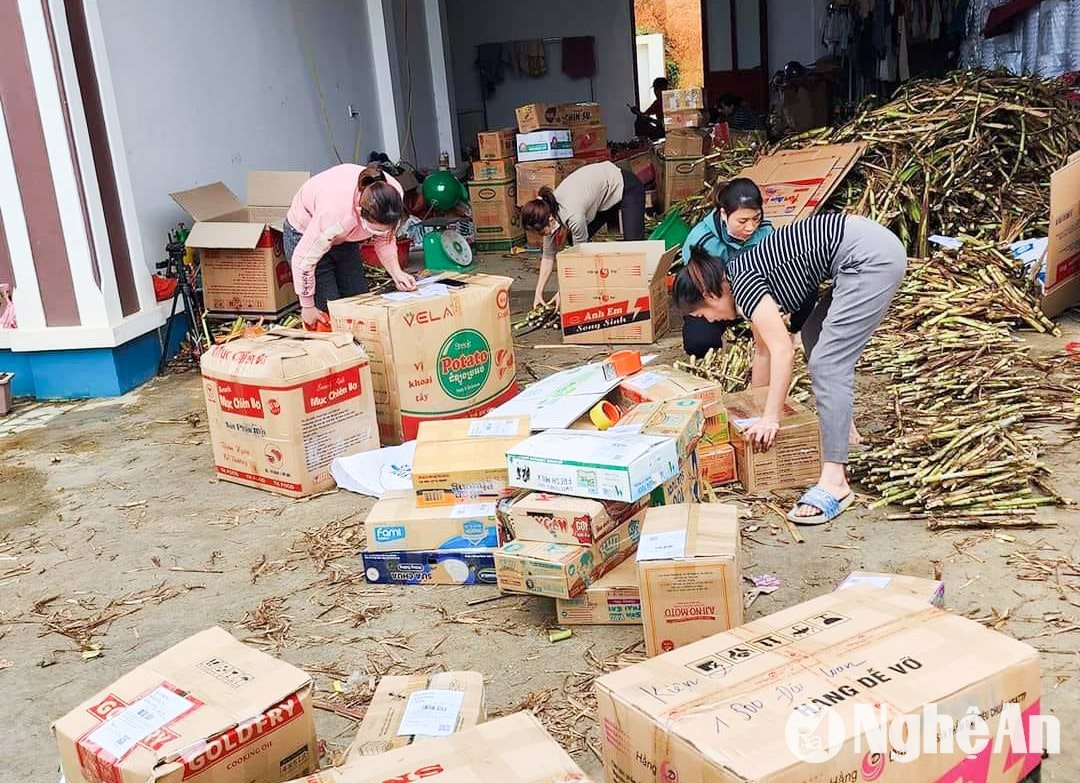
Getting rich from grass is something that few people think of, but daring to think and do, knowing how to take advantage of soil and climate, being dynamic and quick to apply digital technology to consumption, Hai has risen to get rich from grass. Hai has proven to everyone that: "What one person throws away, is valuable to another. Nothing is a waste, it's just that we don't realize its value."

